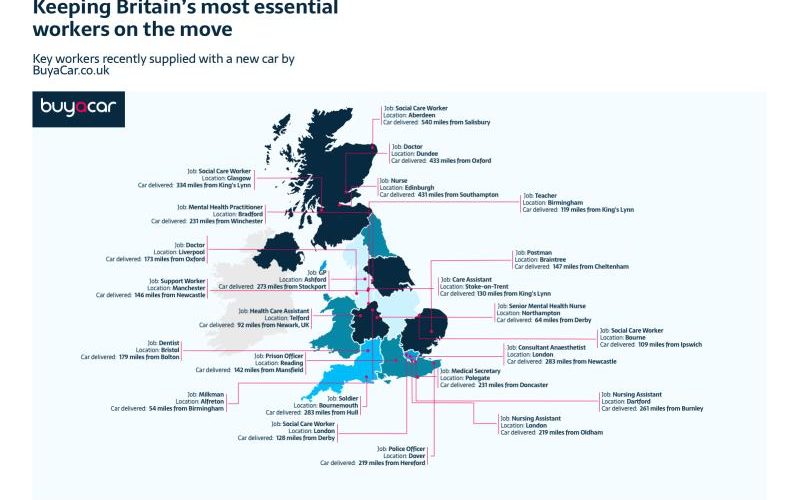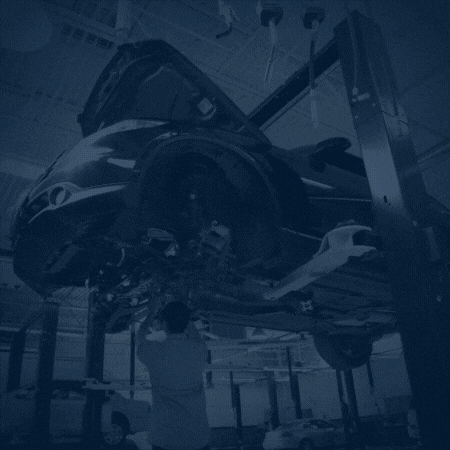BOOMING home deliveries and urgent vehicle replacements by tradespeople and essential workers are dramatically changing the shape of motor retail sales during the coronavirus crisis.
Figures released by the online car marketplace BuyaCar.co.uk reveal that van sales in March increased 20-fold as a proportion of total vehicle sales on the platform.
Searches for vans and other commercial vehicles also increased by 30% as a proportion of website queries about vehicle body types.
And daily applications to finance all vehicle types by self-employed people currently represent up to 24% of the platform’s sales, in contrast to an overall UK figure of 15% of the workforce that is self-employed.
Although BuyaCar says that vehicle sales are down overall, in line with the motor retail industry in general, essential vehicle purchases are continuing. The trend is driven by the boom in home delivery services, due to social isolation measures, and the necessity for some self-employed people, such as parcel couriers, to remain mobile.
While discretionary car-buying activity has almost ground to a halt, another segment of the population who continue to buy cars are so-called ‘key workers’, such as NHS staff, food supply chain workers and others who maintain Britain’s essential services.
The business is now operating only to serve those key workers, tradespeople such as plumbers and electricians who often need to carry out essential repairs or emergency work and those who need a car for essential journeys, for example to to support vulnerable people.
BuyaCar recently revealed that it had delivered 27 cars to key workers across Britain, including to 15 NHS staff working at all levels of the health service. To support those people on the UK government’s list of designated ‘essential workers’ who are permitted to work outside the home, BuyaCar is providing free delivery, contactless vehicle handover and donating a free warranty. The discount package is designed as a gift to help those workers who urgently need to replace their car, typically to avoid the increased infection risk of using public transport to get to work.
According to the COVID-19 Community Mobility Report*, recently published by Google, journeys for shopping or recreational activities were down in March by 85% and even trips to supermarkets and pharmacies fell by 46%.
Analysts at BuyaCar.co.uk believe the boom in home deliveries, prompted by public movement restrictions and social isolation measures, is a major factor behind the relative resilience of commercial vehicle sales on the platform. As one of a dwindling number of car suppliers still operating in Britain, the company has pledged to continue for as long as it can maintain supply, guarantee the safety of staff and provide clean, safe vehicle deliveries to customers who urgently need them.
BuyaCar Chief Executive Andy Oldham said: “These figures reveal a very different market than normal and provide a stark illustration that for many people a new vehicle is not a discretionary purchase but a necessity.
“In 18 years of operation we have never seen much change in the proportion of van sales compared with cars, but to see a 20-fold increase in just one month shows just how COVID-19 is currently changing everything.
“To be clear, this is not a boom in commercial vehicle sales but a massive realignment in their significance to many of our customers, the people for whom a reliable vehicle is a necessity rather than a want.
“As one of the few national car suppliers remaining open we continue to review our operations daily and pledge to help those who need to change their vehicle for as long as we can do so reliably and safely.”












